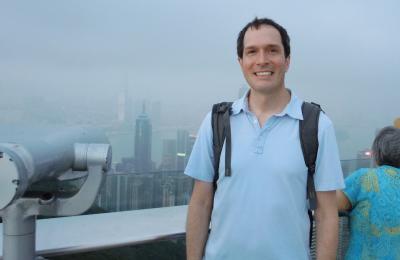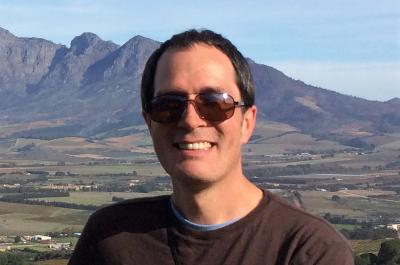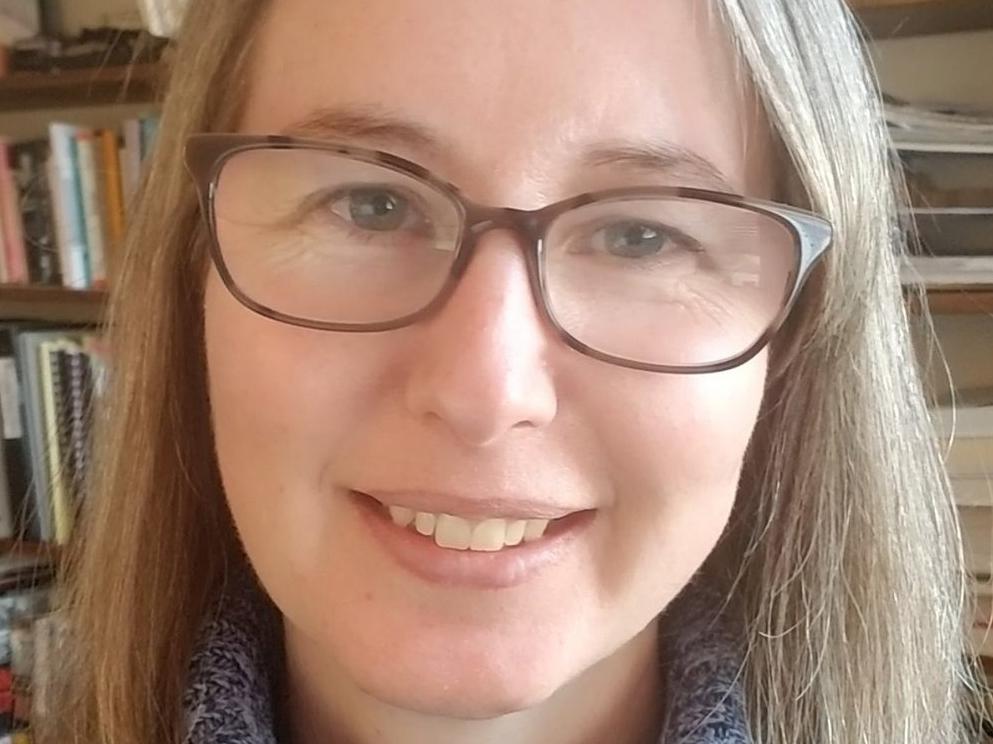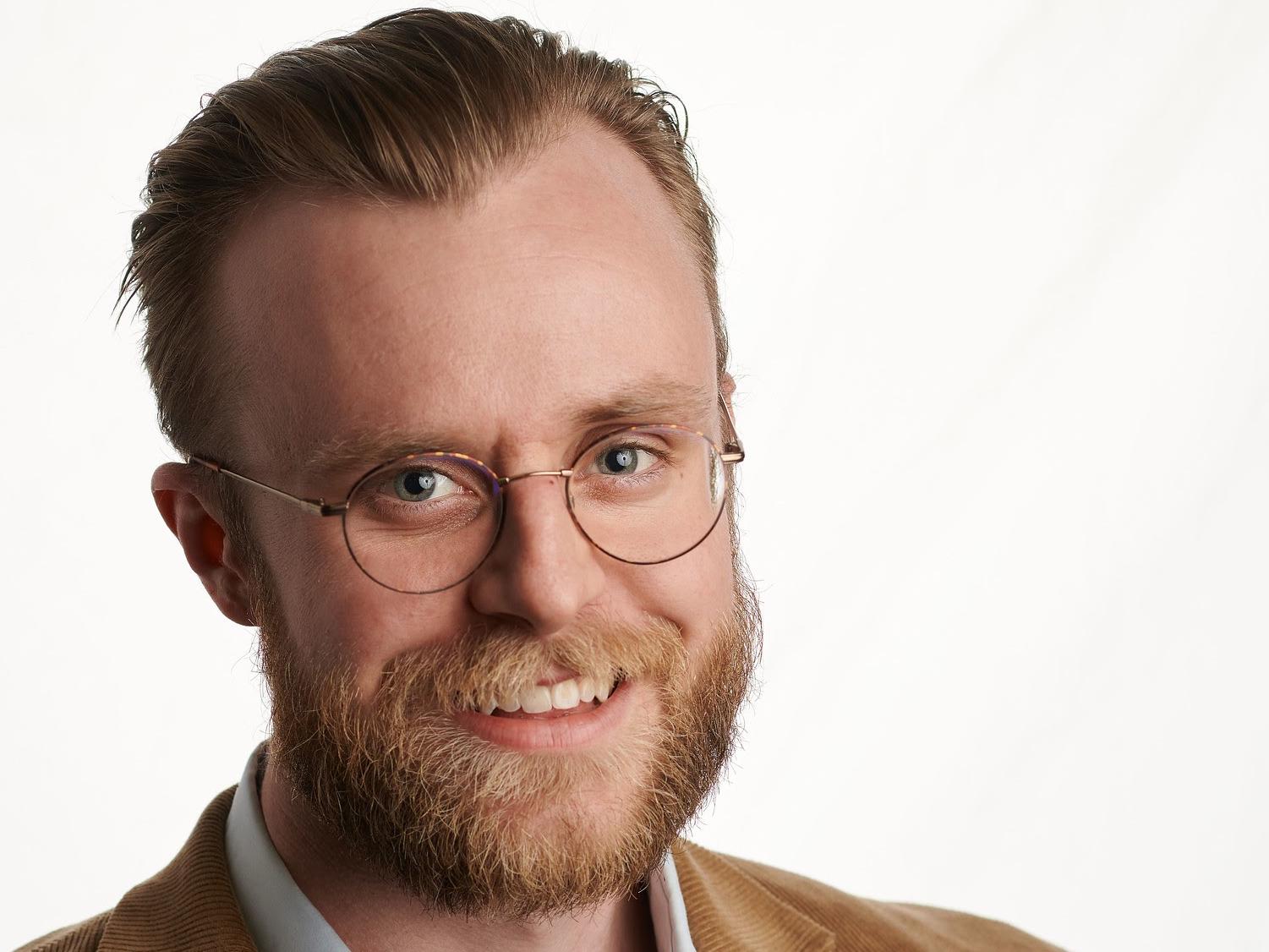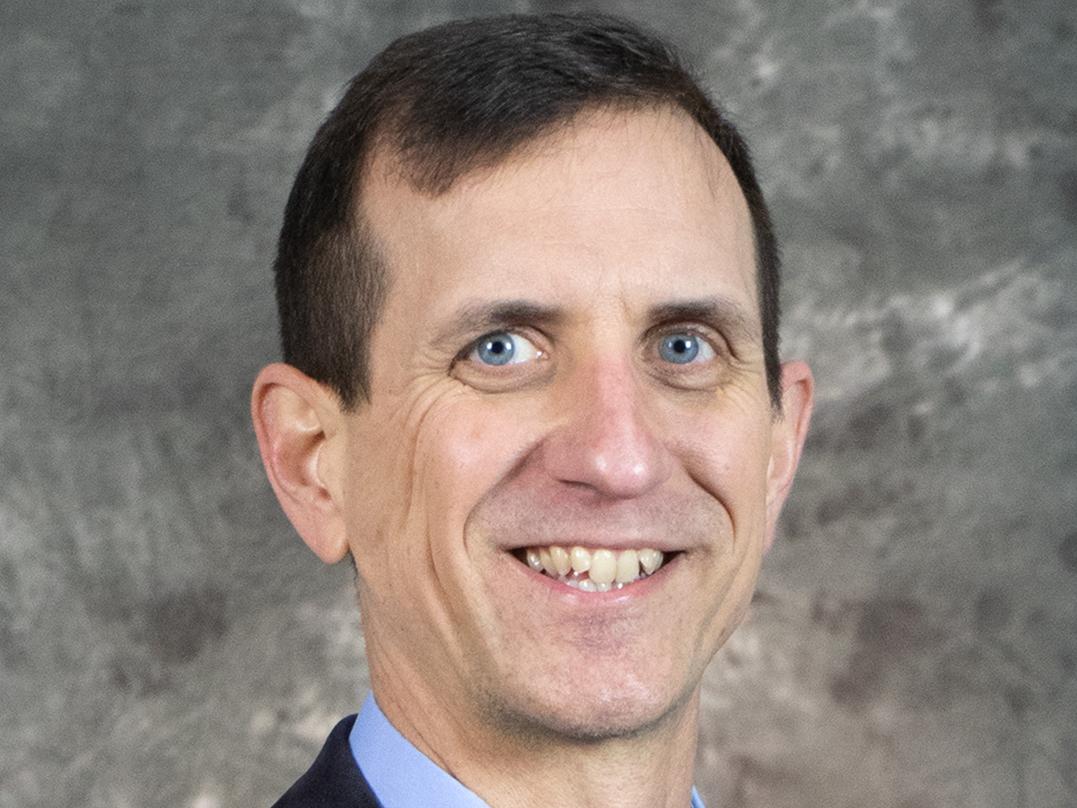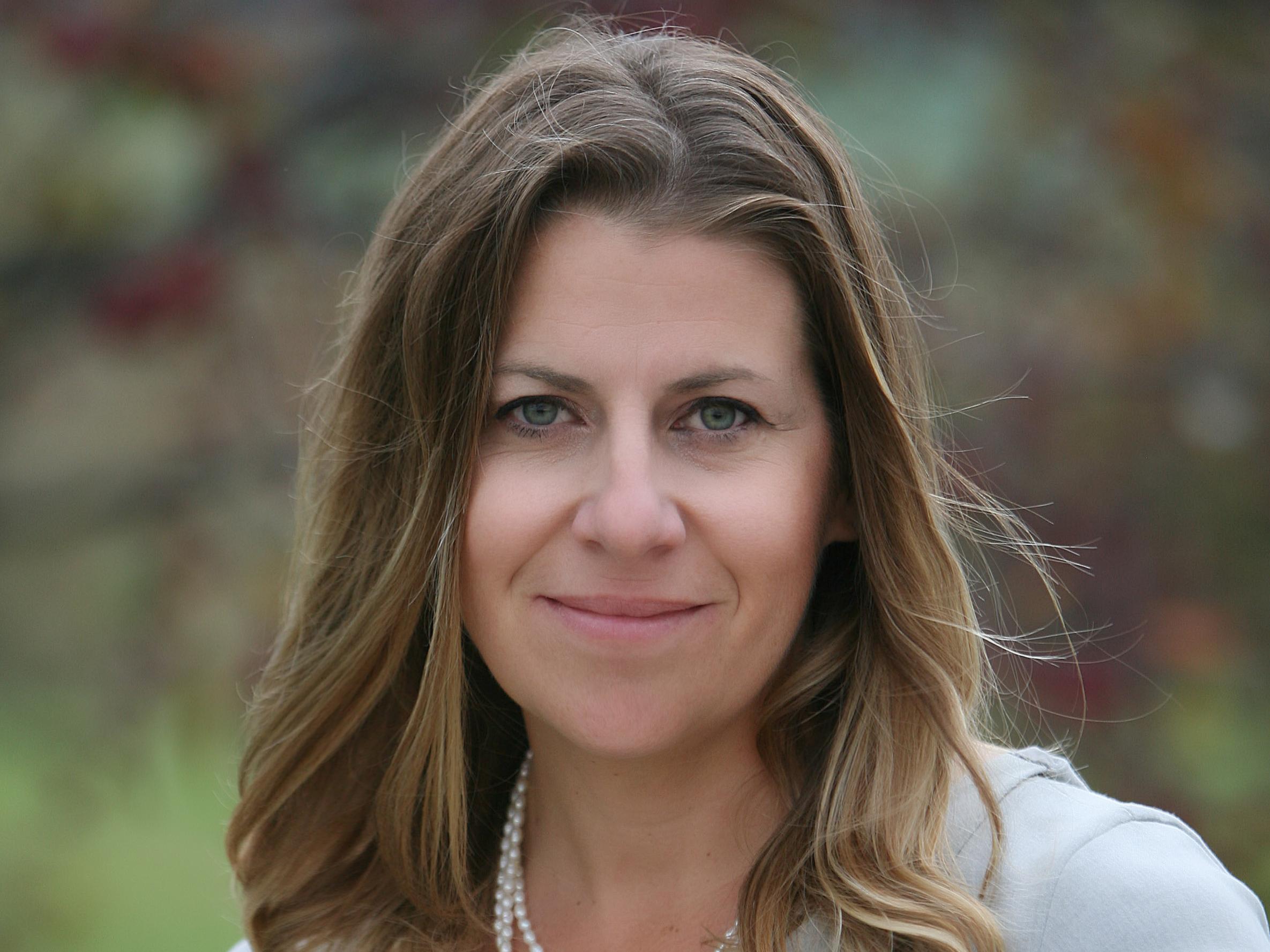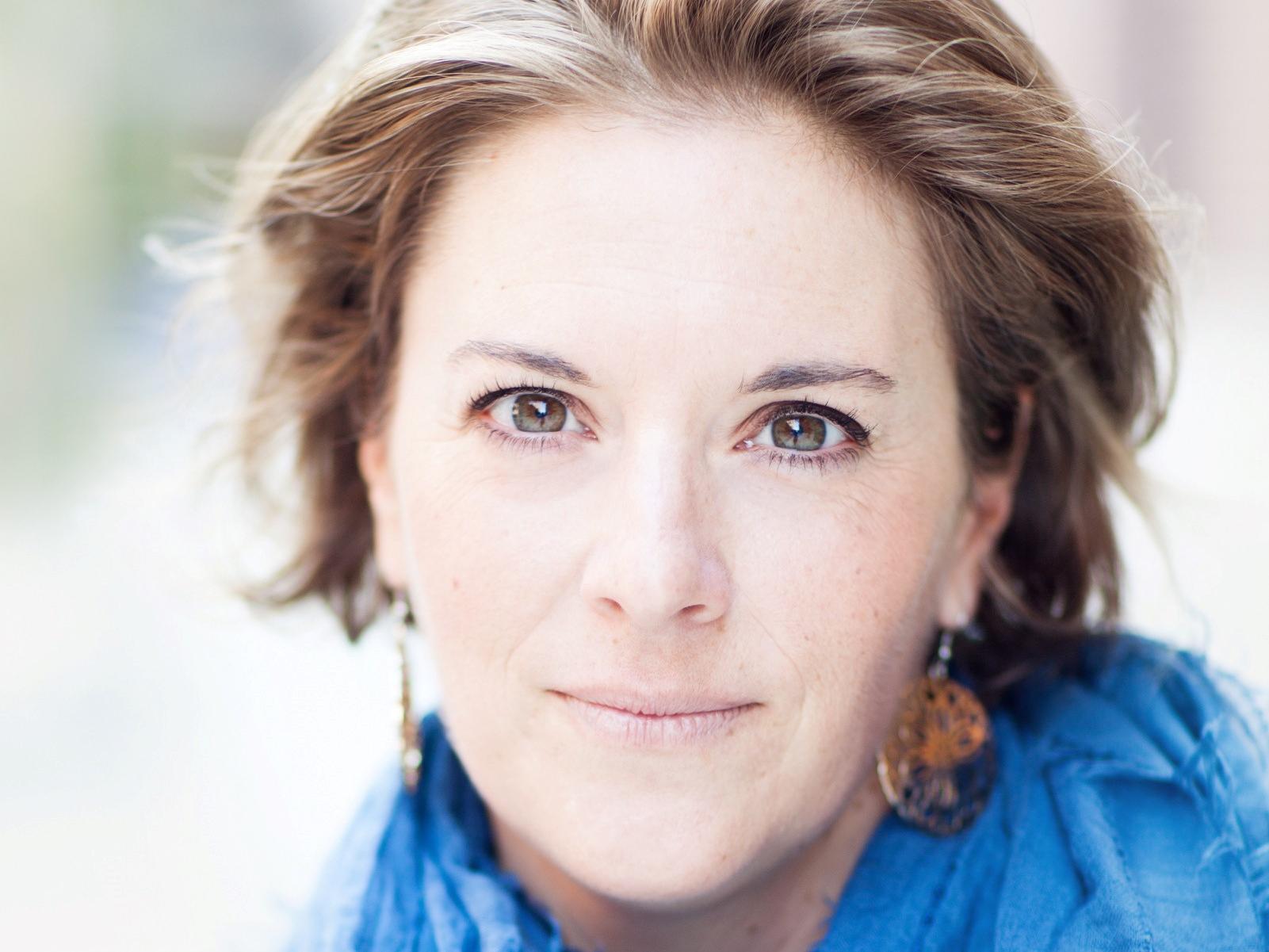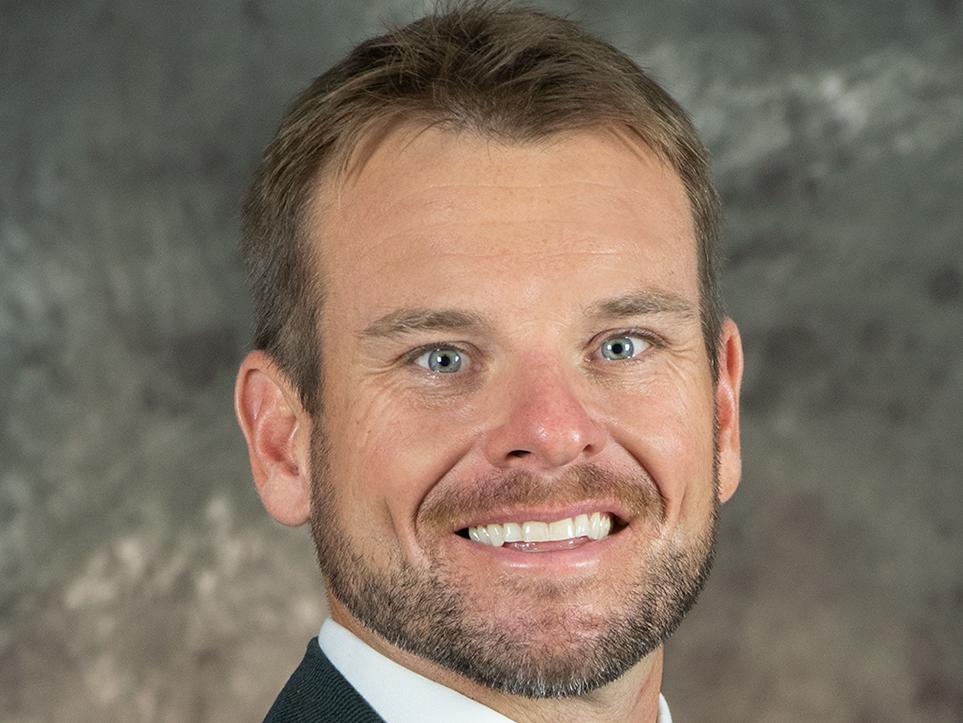History Professor Andrew Hamilton was born in Salem, Mass. — home of the famous witch trials that bear the city’s name. He grew up near there, in Marblehead, on the Atlantic coast, sparking a lifelong interest in the Atlantic Ocean and the stories that have revolved around it.
Hamilton received a BA in history from Grinnell College and went on to graduate school at the University of Wisconsin-Madison, earning a PhD in intellectual history with a minor in history of science/medicine. His dissertation was titled Atlantic Cosmopolitanism and Nationalism: Benjamin Vaughan and the Limits of Free Trade in the Eighteenth Century. That dissertation was later published as Trade and Empire in the Eighteenth-Century Atlantic World (2008).
Hamilton’s research has focused on the Enlightenment — with a particular interest in global connections and international systems — leading him to work on topics such as the British Empire, the transatlantic slave trade, and the history of capitalism.
Hamilton was a member of the 1999 Harvard University International Seminar on the History of the Atlantic World. In 2009, he received a National Endowment for the Humanities (NEH) Grant to be part of a five-week summer institute on Slavery and Slave Resistance at Johns Hopkins University. In 2018, he was awarded a fellowship by the D.B. Reinhart Institute for Ethics in Leadership at Viterbo.
How (and/or why) did you come to be at Viterbo?
I was teaching at the University of Wisconsin-La Crosse in 2007 when Professor Michael Smuksta (who was then chair of the Viterbo history department) recruited me to teach a world civilization course for a faculty member who was going on sabbatical. I took that adjunct job, and I just loved the atmosphere here and the engagement with the students at Viterbo, so when a faculty position in history came open in 2009, I applied for the spot. The rest, as they say, is history.
What do you love most about teaching at Viterbo?
I know it sounds cliché, but it’s the people. The administration, my colleagues, all are so supportive, and I love the energy and enthusiasm that Viterbo students consistently bring to the table. That provides the grounding to build opportunities for all sorts of productive engagement in the classroom and helps create a vibrant teaching and learning community.
I’ve also loved and appreciated the opportunities for study-abroad classes at Viterbo. I have been involved in two so far: to China in 2011 and to South Africa in 2016. Students (and faculty, too) regularly describe these experiences as “transformative,” and they truly are. Learning about the history of a place and people is one thing, but having the chance to travel there and meet people, that is an entirely different experience, and one that I highly recommend to anyone who has the chance!
What inspires you?
As a historian, I am constantly amazed at the creativity and resilience of people. I see that in the histories that I explore and write and in those around me.
A perfect example comes from spring 2016, when I partnered with Professor Matthew Bersagel Braley to develop and co-teach a study-abroad course on South Africa. That class wove together the history of South Africa with a deep engagement with the tradition and philosophy of servant leadership.
The course culminated in a two-week service-learning trip to South Africa, where students and faculty volunteered with local health educators in the townships outside of Cape Town. The experience was demanding as we volunteered in some of the most marginalized and economically depressed townships in the country, but our students continually rose to the challenge.
Our travel included meeting with under-privileged preschoolers and leading them in songs and games. At a different site we worked with community youth leaders to create a shared resource map of their neighborhood. Walking the streets with the local youth leaders afterward, we were better able to understand some of the structural challenges and obstacles to improvements they had discussed with us earlier.
The work was difficult and draining, but our students remained steadfast, eagerly accepting the opportunity to connect with local community health organizers, for instance, exchanging information and opening themselves up to learning from their wisdom and stories.
This was a truly moving experience for me as a teacher. Significantly, more than once I noticed different Viterbo students in the group offering quiet support and lifting the flagging spirits of fellow students who were emotionally overwhelmed.
What advice would you give to students regarding heading out into “the real world”?
I would encourage everyone to maintain a sense of creativity, of wonder — an appreciation for the serendipitous and magical in the world. The more I delve into the works of the great thinkers of history, the more amazed I continue to be by the sight of a firefly on a summer evening, the appearance of the season’s first tomato in my garden, or the simple pleasure of a canoe ride down the Kickapoo River.
Also, for some real advice I encourage you to consult David Foster Wallace’s Kenyon College commencement speech from 2005, a true classic of the genre.
Do you have a little-known fun fact about yourself that would surprise students?
After my first year of college, I took a summer job as a plumber’s assistant on the maintenance crew at Middlebury College in Vermont (where I lived at the time). After some training, I was given the task of turning off the water in one of the teaching halls on campus so we could make repairs in the basement. Somehow, I managed to turn the shut-off valve in exactly the wrong direction and ended up flooding the upper floors of the building, causing cancellation of summer classes in that hall for the remainder of the month. That’s when I realized I wasn’t cut out for that sort of work.
What do others say about you?
People often describe me as rather quiet, a somewhat unusual characteristic for someone who talks in front of groups of people for a living, I suppose. (Waiting tables in a seafood restaurant in Madison to work my way through grad school helped with that.)
I think the upside of that tendency is that I am also described as being a good listener, a trait that I try to cultivate. Empathy is an essential though often overlooked characteristic of an effective historian, so to the extent that these descriptions of me are accurate, I am happy if they help me a bit more empathetic.
